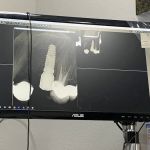What to Do if You Have a Dental Abscess or Tooth Infection
- What is a Dental Abscess?
- Signs and Symptoms of a Tooth Infection
- How to Treat a Dental Abscess at Home
- When to See a Dentist
- Prevention Tips for Avoiding Dental Infections
What is a Dental Abscess?
A dental abscess is a painful infection at the root of a tooth or between the gum and a tooth. It is typically caused by bacteria entering the pulp, which is the center of the tooth, often due to untreated tooth decay or trauma. This infection can spread to the jaw, neck, and even the brain if left untreated, so understanding what an abscess is and how to manage it is crucial.
Signs and Symptoms of a Tooth Infection
When dealing with a tooth infection or abscess, recognizing the symptoms early is key to managing the condition effectively. Common signs include:
- Severe toothache or throbbing pain, especially when chewing or touching the affected tooth.
- Swelling in the gums or face, which may include redness or pus discharge.
- Bad breath and a foul taste in the mouth.
- Sensitivity to hot and cold temperatures.
If you notice these symptoms, it’s important to act promptly to prevent the infection from worsening.
How to Treat a Dental Abscess at Home
While seeing a dentist is the best course of action for a dental abscess, there are steps you can take at home to manage the pain and prevent the infection from getting worse:
- Saltwater rinse: Rinse your mouth with a warm saltwater solution to help reduce swelling and draw out the infection.
- Cold compress: Apply a cold compress to the outside of your face near the affected area to reduce swelling and numb the pain.
- Over-the-counter painkillers: Ibuprofen or acetaminophen can help relieve pain and reduce inflammation.
These home remedies can help alleviate symptoms temporarily, but professional dental care is essential for a full recovery.
When to See a Dentist
Despite home remedies, if the symptoms persist or worsen, it's vital to see a dentist. Immediate dental attention is necessary if you experience:
- Severe swelling that makes it difficult to breathe or swallow.
- A high fever along with the infection.
- Symptoms that do not improve after several days.
Your dentist will likely perform a root canal or drainage procedure to remove the abscess and stop the infection from spreading. Ignoring the infection can lead to serious complications.
Prevention Tips for Avoiding Dental Infections
Preventing a dental abscess is always better than treating one. To protect yourself from tooth infections, make sure to:
- Brush and floss regularly to remove food particles and plaque.
- Visit your dentist regularly for check-ups and cleanings.
- Avoid sugary foods and drinks that can contribute to tooth decay.
- Address dental issues promptly before they develop into more serious problems.
By maintaining good oral hygiene and staying on top of your dental health, you can significantly reduce your risk of developing a tooth infection or abscess.
Learning about dental abscesses and tooth infections is crucial for maintaining your oral health. If you're experiencing symptoms of a tooth infection or abscess, don't wait—contact your dentist right away for professional care and advice. For more information about how to keep your teeth healthy, click here to explore our dental products and solutions.







 Alameda Crossing Dental Group and Orthodontics4.0 (188 review)
Alameda Crossing Dental Group and Orthodontics4.0 (188 review) East Valley Periodontics4.0 (993 review)
East Valley Periodontics4.0 (993 review) Dr. Enrique Wismann0.0 (0 review)
Dr. Enrique Wismann0.0 (0 review) Johnston Dental Group | Dentists in Johnston RI | DMD4.0 (251 review)
Johnston Dental Group | Dentists in Johnston RI | DMD4.0 (251 review) American Dental Solutions | Phoenixville, PA4.0 (180 review)
American Dental Solutions | Phoenixville, PA4.0 (180 review) Central Dental - Dentist Westchester NY4.0 (63 review)
Central Dental - Dentist Westchester NY4.0 (63 review) The Importance of Oral Health Education During Pregnancy for a Healthy Pregnancy
The Importance of Oral Health Education During Pregnancy for a Healthy Pregnancy Best Tips for Brushing Your Teeth Properly for Healthy Gums: Essential Techniques for Oral Health
Best Tips for Brushing Your Teeth Properly for Healthy Gums: Essential Techniques for Oral Health Why Skipping Dental Checkups Can Lead to Bigger Oral Health Problems
Why Skipping Dental Checkups Can Lead to Bigger Oral Health Problems Advantages of Porcelain Dental Restorations
Advantages of Porcelain Dental Restorations How Can Diabetes Cause Tooth and Gum Problems? Preventing and Managing Oral Health Issues
How Can Diabetes Cause Tooth and Gum Problems? Preventing and Managing Oral Health Issues Healthy Habits for Promoting Good Oral Health and Hygiene: Tips for a Healthy Smile
Healthy Habits for Promoting Good Oral Health and Hygiene: Tips for a Healthy Smile